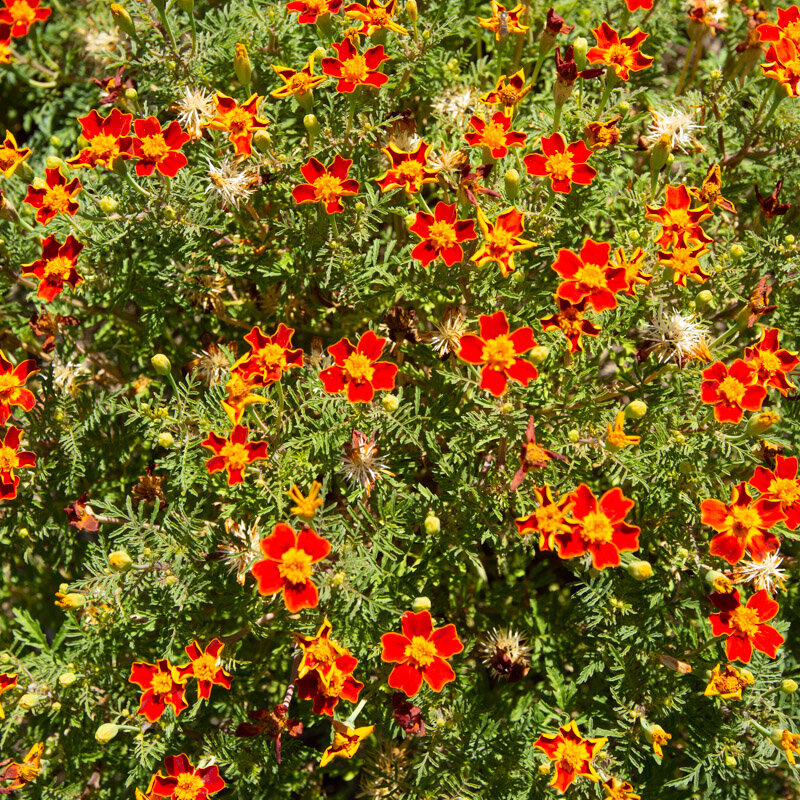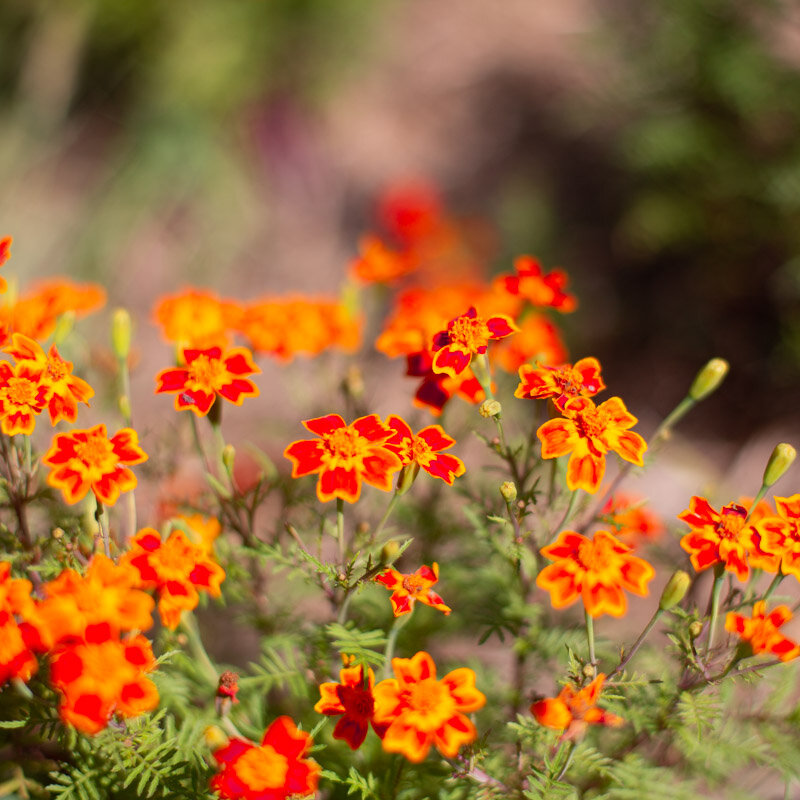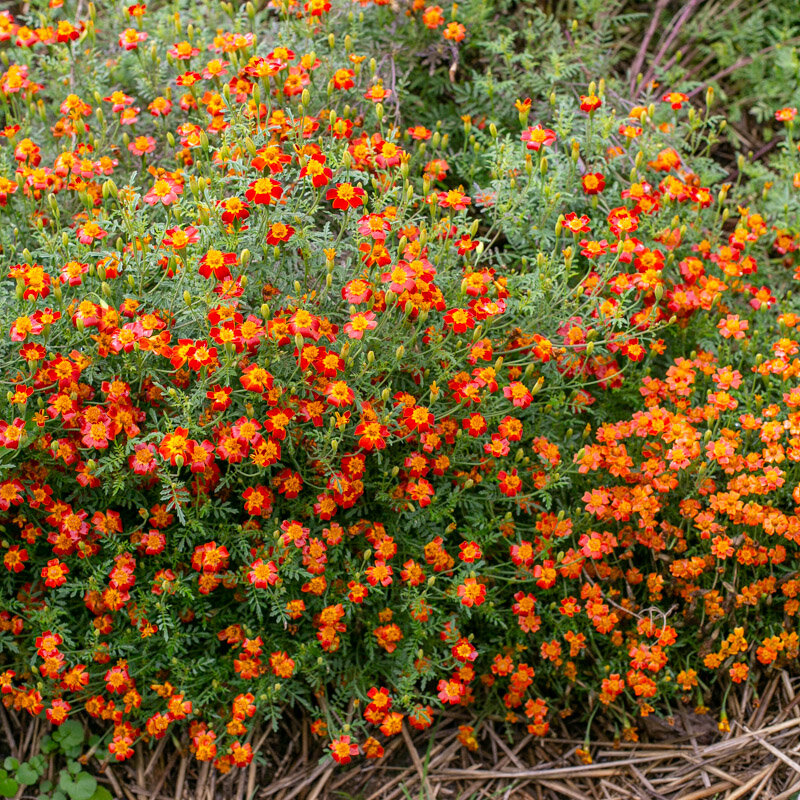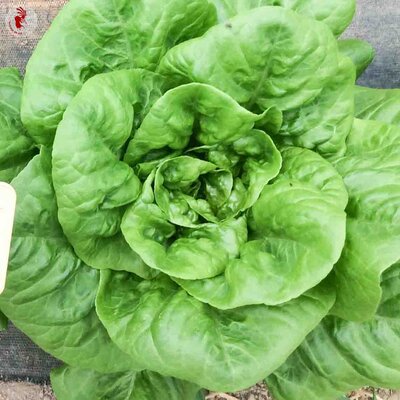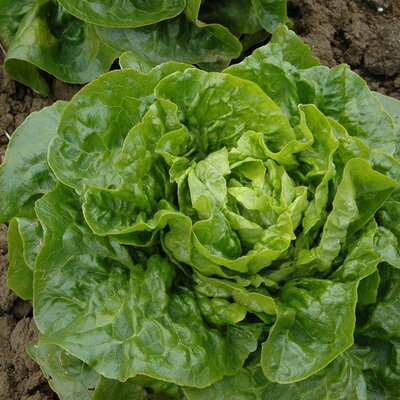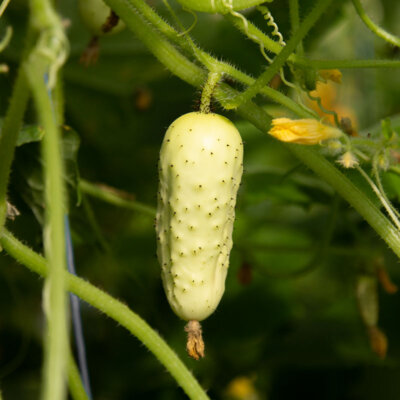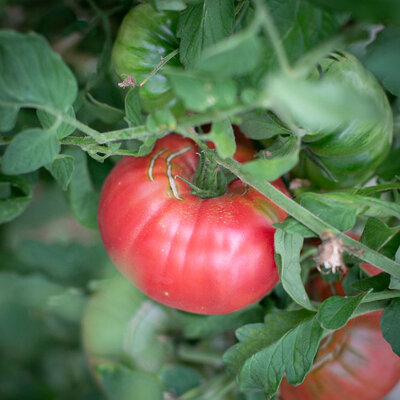Red Gem - Tagetes
This variety, a must for the scented garden, can reach 40 cm in height and produces a large bed of red flowers with an exquisite citrus fragrance, lasting several months.
Discover it on the Kokopelli blog: "Tagetes: medicinal, aphrodisiac and visionary plants."
These products may also be of interest to you
in the ground, in bucket
Sow in trays under light cover, at a temperature of around 20°C, 4 weeks before planting. Transplant after the last frosts, 15 cm apart in all directions. It is also possible to sow light, directly in situ, in sufficiently warmed soil, keeping only the most vigorous plant every 15 cm.
March, April, May
April, May, June
June, July, August, September, October
in the ground, in pot
sunny
low
humus, potting soil, clayey, limestone
drained, reheated
Tagetes tenuifolia
mid-season
200 seeds
Red
fragrance, edible
From 20 to 40 cm
cut
This species is native to Mexico and Mesoamerica.
The flowers, like the leaves, of Tagetes tenuifolia are highly prized for their lemony fragrance in cooking: wines, soups, sauces and so on. In Mexico, this plant is used as a decoction for snakebites and, in Peru, as a poultice for wounds and bruises. Like other Tagetes species, it is also used for indigestion, stomach ache, diarrhea, eye irritation, constipation... Thanks to its polyacetylenic thiopene composition, this species has a strong biocidal action (i.e. fungicidal, bactericidal and insecticidal) in root exudates, against plant nematodes such as Rotylenchulus reniformis, Tylenchorhynchus brassicae, Pratylenchus penetrans and Meloidogyne incognita, and occasionally against certain slugs. According to Marotti et al. 2004, this species has the same pool of essential oils as Tagetes patula, Tagetes erecta and Tagetes minuta, namely dihydrotagetone, tagetones, ocimenones and piperitones. Puspal De et al. in 2017 highlighted that - at least with the chemotypes of the Tagetes species they analyzed - Tagetes tenuifolia has less antioxidant activity in its flowers than Tagetes erecta and Tagetes patula, but much more in its leaves. See Xochi's article on the Kokopelli blog. Tagetes: medicinal, aphrodisiac and visionary plants.



